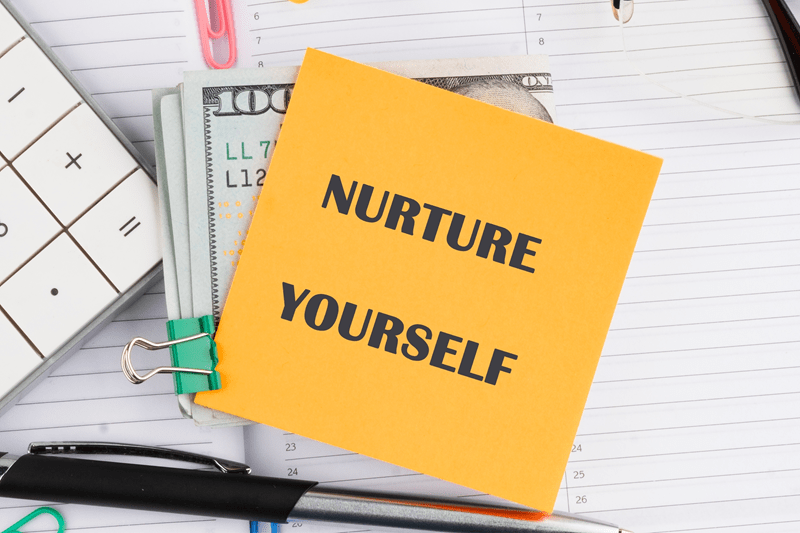
A self care routine helps someone look after their well-being through small steps. It does not have to be complex or heavy. In this blog, the reader will learn how self care routines work, how to create a self-care routine that fits their day, and how daily habits can stay consistent without feeling like extra work.
Self care is a steady way of checking in with what the mind and body need. Many people confuse self care with big activities or large lifestyle changes, but most of the time, it is really about a few small actions. These actions can help a person slow down or reset when things feel busy or unclear.
Self care grows as life changes. A person might find something that helps them today but might need something different later. This is normal. A routine like this should shift with time because needs shift too. That is part of why people stay consistent—they adjust instead of forcing a fixed plan.
Daily life brings stress, noise, screens, and long hours. Simple habits like a quiet breather, an early night, a short walk, or even a few minutes with a book can help the mind stay anchored. These small actions often matter more than one might think.
Some people feel guilty about taking time for themselves. But self care is not a luxury. It is a basic way of maintaining emotional and mental balance. When a person feels better inside, their daily tasks also feel easier to handle.
Most individuals struggle to start because they think everything must be perfect. But a routine like this is not about perfection at all. It is about showing up for yourself in small moments, even if they are not the same every single day.
Top Pick: Top 10 Natural Sleep Aids to Try for Better Sleep 2025"
Starting a routine can feel confusing at first, but it becomes easier when the person begins by noticing what actually helps them. Some people feel calmer with soft light. Some prefer silence. Others feel better with light movement or a few minutes of fresh air. These small clues help shape the routine.
After noticing what brings ease, the person can bring one of those things into their day. Choosing one step instead of several makes the routine easier to follow. A daily five-minute pause is often enough to begin with. Or a little break from screens. Or drinking water slowly before starting work. When the step is small, the chance of repeating it is higher.
People also find it easier to stay steady when someone in their life supports the idea of self care. Even a quick check-in from a friend can help a person stay aware of their habits. Support makes the routine feel less like something done alone.
As time passes, the routine may need updates. The person might replace a habit with something new because the old one no longer feels right. There is no issue with that. A flexible routine stays alive, while a strict one becomes tiring.

The three best self care routine ideas are listed in the following points that can help you build consistency:
Daily self care routine habits help someone stay centered through normal days. These habits do not demand extra energy and fit easily into busy schedules.
A mindful pause is simply stopping for a moment and taking a slow breath. It lets the mind return from scattered thoughts. This small break creates a sense of calm without needing any tools. It is one of those quiet habits that gently reset the day.
Light movement can be a slow stretch or a brief walk. It helps the body release the tension that builds up from long periods of sitting or constant tasks. It also makes the routine feel active in a simple way, without making it feel like a workout.
Stepping away from screens gives the mind a small rest. This can be during meals or before sleep, even for a short window. The break reduces information overload and helps the brain settle down a bit.
These self care routine ideas add comfort to regular days. They help a person feel more relaxed without needing major changes.
A soothing environment does not need fancy items. It could be soft lighting or a clean table surface. Even a simple scented candle or quiet corner can help the mind slow down. These details create a space that feels easy to return to.
The short reading sessions and other calm activities will help your mind to relax. It can be a light chapter, a quiet puzzle, or even drawing lines on paper. These slow moments help the mind settle into a peaceful rhythm.
Time outside brings fresh air and a bit of stillness. Even a short step onto a balcony or a quick walk near plants helps. It clears the mind and gives the senses something gentle to focus on.
These ideas make it easier to build self care routines that feel warm and manageable. They introduce comfort in small, repeatable ways.
Consistency becomes simple after you create a routine that fits naturally into your life. These steps help someone stay steady without making things complicated.
Step 1: Start With One Manageable Step
Starting small helps reduce pressure. One simple habit like a short pause or a night-time stretch builds confidence. When the step is easy to follow, the routine grows on its own.
Step 2: Adjust the Routine When Needed
A routine should shift with the person’s needs. When something no longer feels supportive, it should be replaced with a habit that fits better. This keeps the routine realistic and not forced.
Step 3: Ask for Support When Life Feels Heavy
Support makes consistency easier. Talking to someone who understands the idea of self care helps a person stay grounded. It also reminds them they don’t have to manage everything alone.
These steps make the routine flexible and realistic. They help the person stay consistent without feeling weighed down.
Must Read: Balance Mind Body Soul for a Healthier Life Journey
A self care routine becomes stronger when it stays simple and steady. With small habits and flexible choices, the routine supports better balance through different days. Over time, these actions help the person feel calmer and more centered without adding pressure.
This content was created by AI